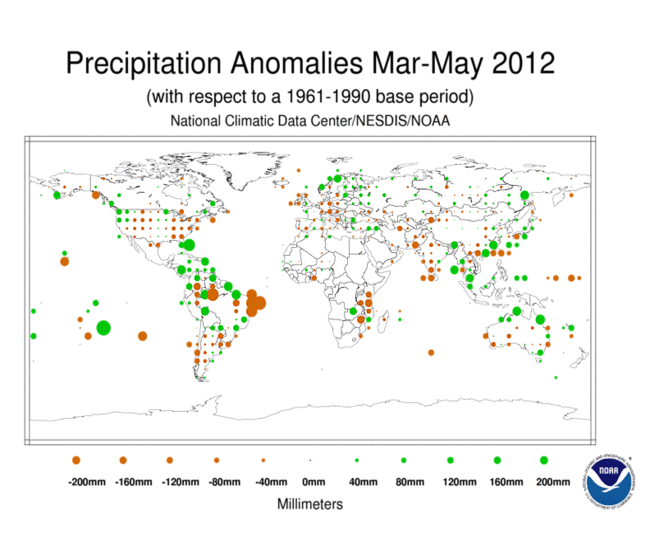2012 May
Post on: 16 Июнь, 2015 No Comment

Post navigation
Finam Global to offer growth capital in TMT companies worldwide
Finam, one of Russia’s most well established financial groups, has launched Finam Global, an international fund that groups its existing investment units operating in the technolgy, media and telecommunication (TMT) sector.
Among the assets included in the new fund’s portfolio are such major Russian Internet companies as dating site Mamba.ru, context advertising service Begun, and Banki.ru, a leading banking industry portal. Finam also owns shares in the international social and dating network Badoo.com, the German mobile app publisher Shape AG, and the international traffic exchange platform Marketgid .
Finam Global’s investment strategy targets mid-sized companies operating in the TMT sector worldwide, “with solid business models and strong growth potential,” according to its presentation documents. The fund invests from $1 to $30 million in each company.
Finam, which has made nearly 30 investments since 2004, estimates the current value of its unrealized portfolio at $900 million. It claims an IRR of over 80% with a cash-on-cash return ratio in excess of 3.
Finam Global also inherits Finam’s investment banking activities for high tech companies. (In 2011, Finam organized the IPO of Utinet.ru, a leading electronics online retailer.) It will also launch several TMT related investment products.
News from the East -West digital News
Online furniture retailer HomeMe.ru secures $5 million from leading Russian and Western funds
HomeMe.ru, a website offering furniture and some home accessories, announced last week it has raised $5 million in a Series A round of financing from Russian venture funds AddVenture and ABRT, as well as from Mangrove Capital Partners, a fund headquartered in Luxembourg.
Launched in early 2012, HomeMe.ru currently has an assortment of 2,000 stock keeping units (SKUs) in the lower to medium price segments, founder Oleg Pai told East-West Digital News.
Using the existing delivery and assembly capacities of Pai’s other furniture businesses, HomeMe.ru serves Moscow and its surroundings. As early as next year, the company plans to deploy in five more large Russian cities, including St. Petersburg.
A $7 billion market
The site expects to reach a turnover of $3 million by the end of the year. “In the long term, HomeMe.ru has a chance to reach over $100 million of turnover,” believes AddVenture partner Maxim Medvedev.
The Russian furniture market is estimated at $7 billion, of which the online segment represents approximately 1% – compared to 9% in the US and 13% in Germany, according to HomeMe.ru.
The online furniture business has developed quickly in Russia over the last few years. Stolplit.ru, a furniture company, has a strong online presence, while Mebelrama.ru, a site backed by German business incubator Rocket Internet, currently claims an assortment of 16,000 SKUs.
Also competing in this market segment are Domosti.ru and Homefair.ru, two sites whose offers include furniture as well as a wide range of items for the home and garden accessories.
Last but not least, click-and-mortar retailer Enter.ru, launched last year, has a strong furniture section offering 2,185 items. Backed by consumer electronics giant Svyaznoy. Enter.ru already serves a dozen of larges cities in Russia.
A Russian self-made man story
HomeMe.ru is the fourth furniture business for Oleg Pai, a graduate of the Moscow Railways University (MIIT). His first company, Interio Star, which supplies custom-made furniture to fashionable clubs and restaurants, has a turnover in excess of $1 million.
In a mere three years, Pai then created four furniture factories from scratch, which now employ 350 people. With distribution networks all over Russia, the furniture manufacturing company, named Stilistica, claims a monthly turnover of $50 million.
News from the East- West Digital News
IT technopark opens in Chelyabinsk
In a bid to participate in the development of a modern innovation infrastructure across the country, the authorities in Russia’s Chelyabinsk region have just announced the opening of a technopark dedicated to information technologies.
The technopark, named Novator, is located in Chelyabinsk, a city of 1.1 million inhabitants just to the east of the Ural mountains.
Novator is the first of a series of industry-focused clusters to be built across the region. The technopark aims to bring together IT and software developers, help small, innovative firms to develop their businesses, and push large companies to overcome technological underdevelopment.
The new complex provides office space for startup firms as well as rooms for training seminars by web design companies from Chelyabinsk. According to the technopark’s representatives, a resident can be either an individual – for example, a student working to realize a personal project – or an organization. While IT startups are of course encouraged, established companies are also eligible to become residents. For example, a company that has already entered the market but needs help with product promotion and other services could benefit from Novator residency. Resident companies will benefit from tax benefits and discounted commercial lease rates.
News from the East-West Digital News
Fast Lane Ventures and Ru-Net launch event management and ticket booking system
Moscow-based serial startup developer Fast Lane Ventures has teamed up with Ru-Net, an established Russian venture fund, to launch Eventmag.ru, an online service to organize events and book event tickets.
The well known US site Eventbrite.com was taken as a model, Fast Lane openly acknowledges, with the ultimate goal of providing a ticket selling platform for virtually “all events of all types” that are held in the country.
Eventmag.ru provides organizers a range of online services to manage and promote events and to sell tickets. “Organizers of major events may use widgets to sell tickets and offer an easy check-in procedure through iPhones or Android smartphones,” said Fast Lane PR Manager Lada Shcherbakova in an exchange with East-West Digital News.
The investment of Fast Lane and Ru-Net in Eventmag “ranges in the millions of dollars,” Shcherbakova indicated.
Among competiting – though not identical – online event management services are Qrickets.ru, Ticketforevent.com, and Timepad.ru. Earlier this year, the latter received investment funding from the Rambler-Afisha group, which controls several online media properties.
News from the East -West Digital News
Leta Group launches venture fund; announces Displair as first investment
Last week, Leta Group, a prominent Russian IT security holding, announced the launch of ‘Leta GIV,’ its corporate venture arm, along with its first investment – interactive air screen maker Displair.
“Generating projects internally is not enough to seize the opportunities offered by Russia’s booming innovation environment, so we decided to create this dedicated vehicle,” said Leta Group’s President Alexander Chachava in an exchange with East-West Digital News.
The 32-year old Chachava had just graduated from a Russian engineering university when he co-founded Leta nine years ago.

Leta GIV will invest up to $10 million each year in three or four early stage companies. The fund essentially targets Russian companies operating in the Internet, e-commerce, and software industries, in addition to IT security. “We will seek complementarities with our existing business and favor projects that are in line with our commercial expertise and capacities,” Chachava explains. “Above all, we seek original concepts with global potential.”
Displair, the much-hyped startup that manufactures next-gen interactive air display screens, was chosen as the fund’s first portfolio company. Leta has contributed the major part of the startup’s $1 million seed stage round. which will be closed in the forthcoming weeks. Among Displair’s other seed stage investors are several Russian and Western individuals, including US business angel Esther Dyson, Dutch e-marketing expert Bas Godska, as well as EWDN co-founders Alexander Baderko and Adrien Henni.
With 24 million individual customers in Russia and other countries as well as 30,000 corporate clients in Russia, Leta Group generated approximately $100 million in sales revenues last year, up 30% from 2010. Among its most recent acquisitions is Group-IB, a provider of cybercrime investigative and forensic services, which announced its North American launch last year.
News from the East -West Digital News
Yandex surpasses leading TV channels in terms of audience
Last month – for the very first time – the daily audience of search engine Yandex surpassed that of First Channel (“Pervyi Telekanal”) among inhabitants of large Russian cities between 12 and 54 years of age, Russian business daily Vedomosti reported last week.
Based on TNS data, the leading search engine served as many as 19.1 million users that month, compared to 18.2 million for the leading TV channel.
While the weekly audiences of Yandex and Mail.ru, the leading portal and webmail services, almost equalled that of First Channel on a weekly basis, television remain predominant in monthly measurements, with 41.4 million viewers in April. This is 8.2 million and 8.7 million more, respectively, than the monthly audience of Mail.ru and Yandex.
In 2011, the revenues of Yandex reached 20.0 billion rubles ($622 million), compared to First Channel’s 28.8 billion rubles ($926 million) and NTV’s 20.7 billion rubles ($666 million), Vedomosti reports.
Online advertising spending surpassed print advertising for the first time in 2011, the Russian Association of Communication Agencies (AKAR) annnouced in its annual report which was released earlier this year.
According to the report, the Russian online advertising market reached $1.4 billion, up 56% from 2010, demonstrating the fastest growth among the different segments of the market. In 2010, online advertising spending had grown by 42%.
News from the East-West digital News
LTE tenders scheduled for July, Tele2 could sell its Russian subsidiary in case of failure
Tele2 Russia, the Russian subsidiary of a European telecommunication group based in Sweden, will take part in upcoming tenders for allocation of LTE frequencies across Russia in the 791-862 MHz range. After being postponed several times, the upcoming tenders are scheduled for the 16th of July, 2012.
“We understand that our chances are not great, based on the conditions that have been declared. Nevertheless, we will apply,” Russia’s Tele2 president Dmitry Strashnov told news agency RIA Novosti earlier this month.
According to industry analysts, only four Russian operators – MTS, Megafon, Vimpelcom, and Rostelecom – will be able to match the conditions of the tender, which were disclosed in early May. Last year, these companies had formed Soyuz LTE, a consortium created to determine the possible conditions for LTE deployments in Russia. Unsurprisingly, the conditions for frequency allocation in the 791-862 MHz range released earlier this month by the State Commission on Radio Frequencies (SCRF) were very similar to the consortium’s recommendations: four lots of LTE frequencies, 2×7.5 MHz, FDD.
A failure to obtain LTE frequencies for Tele2 – which already failed to receive 3G licenses – would mean that the company would remain a 2G-only operator without broadband activity. That could seriously hamper its profitability in the middle term, an unnamed source close to the company told business journal RBC daily, triggering the Swedish shareholders to consider selling the company.
According to RBC Daily’s unconfirmed reports, the most likely buyer of Tele2 Russia could be Rostelecom, which has repeatedly confirmed ‘big plans’ for the Russian mobile market. According to various estimates, the valuation of Tele2 Russia could reach from $3.4 to $5 billion.
The company currently serves more than 20 million subscribers in 37 Russian regions.
News from the East-West digital news














